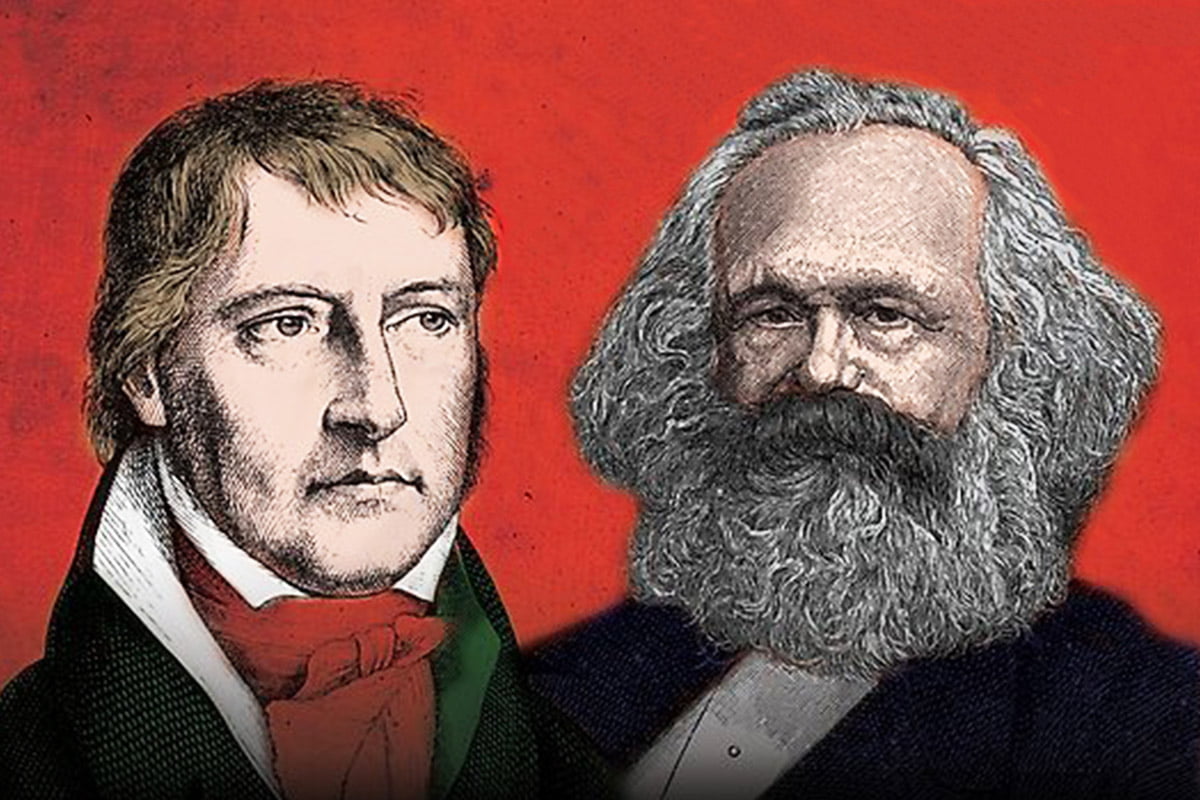Philosophy might seem irrelevant to the fight for revolution. But in truth, it is only by having a correct, scientific outlook that we can transform the world around us.
The History of Philosophy: A Marxist Perspective by Alan Woods is an essential book for all revolutionaries to study. In this book, the author traces the progression and development of human thought throughout the various stages of history.
However, during the biggest cost of living crisis in history, it may seem like the study of philosophy should not be prioritised. Isn’t philosophy an indulgence that we can’t afford to waste time on?
Behind this sentiment lies a rightful disgust at the obscure and shallow ideas spewed by today’s petty-bourgeois academics – ideas which are above all completely removed from the lives, thoughts and aspirations of ordinary working people.
But philosophy is far from being a field of study detached from human activity. In reality, it is a way of understanding the world from beyond the narrow realm of day-to-day life. It concerns itself with the ‘big questions’ that have been pored over by humankind for thousands of years.
As Woods writes, “philosophy emerges as soon as men and women begin to try and explain the world without the intervention of supernatural agencies… it marks the beginning of a scientific understanding of nature and of ourselves.” (p. 3)
Marxists have their own philosophy – that of dialectical materialism – which allows us to view the world, nature and society in its process of constant change and development.
By studying this method, we are capable of penetrating beneath the whirlwind of complex events and ever-changing phenomena that occur in our society, and arriving at an understanding of the laws and processes that govern it. And it is only by understanding these laws that we can change them.
Therefore, the study of philosophy is essential to the building of a revolutionary movement, and it is closely linked to the task of transforming society.
A materialist view of philosophy
For many bourgeois philosophers – who treat philosophy as something detached from practical activity and the class struggle – tracing the development of human thought has proven an impossible task. It appears to them as complete chaos, which has no rhyme or reason whatsoever.
As the book explains, “Once thought begins to develop, it takes on a certain life of its own… Thought itself becomes an object of study. Its material origins are lost sight of. It appears as something mystical, separate and apart from matter…” (pp. 209-210)
But, “from a materialist point of view,” Woods writes, “thinking is not an isolated activity, but is inseparable from human existence in general.”
The ideas of the Ancient Greek philosophers, for instance, played a crucial role in the development of science and culture. But the fact that this revolution in thought took place when and where it did is no random accident.
As the author explains in the opening chapter ‘The Emergence of Philosophy’, the rapid economic expansion in the Eastern Mediterranean, the dissolution of the old patriarchal society, and the rise of new aristocratic classes which could devote themselves to study and contemplation – this was the basis for the birth of philosophy.
These advances, however, were thrown back by the collapse of the old slave-owning empires, and the advent of the ‘Dark Ages’ in Europe. The domination of the Church during the Middle Ages held back philosophy for a whole epoch.
Nevertheless, as recounted in the chapter ‘The Renaissance’, the ideas of Ancient thinkers – preserved by Arab scholars – were rediscovered and developed by the philosophers of the revolutionary bourgeoisie.
Throughout this book, Woods provides a unique insight into how the development of human thought is intertwined with the development of the productive forces and the class struggle.
The logic of philosophy

Marx and Engels based their method on the philosophy of the German idealist G.W.F. Hegel.
The various schools of thought present throughout history are not random and disconnected from each other – like the postmodern academics assert. The development of thought is governed by an objective logic. As brilliantly explained in the chapter ‘Hegel’s Revolution in Philosophy’, only a dialectical understanding can uncover this logic.
Rather than each school of thought completely rejecting all that came before it, we see that all genuine philosophers base themselves on the ideas which came before them. All that is faulty and inessential is discarded, while everything essential and rational is retained.
Using the method of dialectics, we can see that human thought generally develops from lower to higher stages. Each school of thought develops a certain aspect of the truth, albeit in an incomplete, one-sided way. Over time, we arrive at a closer reflection of reality.
For example, the ideas of Marxism were not plucked out of thin air by Marx and Engels. Rather, they based themselves on all that is progressive in the history of human thought.
As Woods uncovers in the final chapter ‘From Hegel to Marx’, Marx and Engels formulated their ideas by critically engaging with previous thinkers like Hegel, the Left Hegelians, and Feuerbach.
Even though Hegel based himself on a very mystical idealism, Marx didn’t reject him altogether, because Hegel was still able to develop logic to an unimaginable height – something to which Marxism owes a great deal!
Philosophy as a tool to change society
In the past, philosophy and science were the two of the most important tools in man’s conquest for truth – a sword that cut through all the lies of mysticism and sophistry.
Nowadays it is reduced to a harmless, puny object of empty speculation that serves no purpose other than to justify the status quo (and to give academics something novel to write about!)
In denying the possibility of knowledge, the postmodernist academics of today have rejected scientific and rational thinking altogether. This is not entirely accidental, as in reality it represents the pessimistic mentality of the ruling class, whose system is at a dead-end.
However, in rejecting the pitiful state of philosophy today, we must not look upon the philosophers of the past with the same contempt. We must actively study and learn from the great thinkers like Marx, Engels, Feuerbach, Hegel, Spinoza, and so on.
If the bourgeoisie and their lackeys in academia have rejected science and reason, this means that the task has fallen to the working class – and to the Marxists in particular – to defend and further develop these colossal achievements of civilisation.
In order for the struggle against capitalism to be victorious, the working class and its leadership need a clear, scientific outlook, capable of generalising the experiences of the class struggle and pointing a way forward. Only Marxism – and its philosophy of dialectical materialism – can provide such an outlook.
Therefore, a thorough study of philosophy is required of every revolutionary. The History of Philosophy: A Maxist Perspective by comrade Alan Woods is undoubtedly the best place to start.
Purchase your copy from the new Wellred Britain website!
Get involved in your nearest Marxist Society to join a Marxist reading group.



